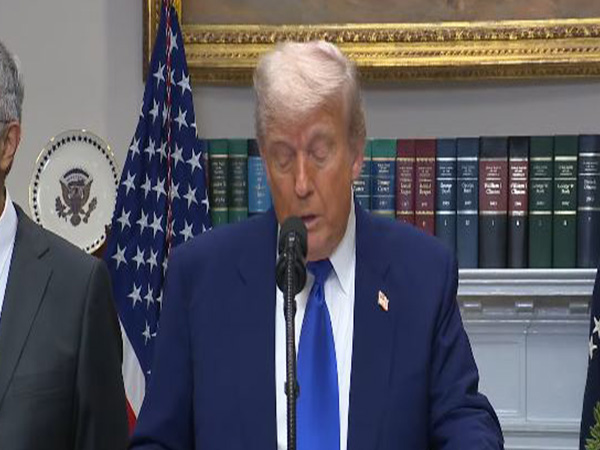
"Overshadowed by President Trump's revelations made minutes earlier": Jairam Ramesh on PM Modi's address
May 12, 2025
New Delhi [India], May 12 : After Prime Minister Narendra Modi's address to the nation on Monday, Congress MP Jairam Ramesh questioned PM Modi's silence on recent revelations made by President Donald Trump regarding US mediation on the India-Pakistan issue.
In a post on X, Jairam said, "The Prime Minister's long-delayed address to the nation was completely overshadowed by President Trump's revelations made minutes earlier. The Prime Minister did not say a word on them."
Raising several questions, he asked, "Has India agreed to US mediation? Has India agreed to a 'neutral site' for a dialogue with Pakistan? Will India now give in on US demands for opening Indian markets in autos, agriculture, and other areas?"
Further, the Congress MP stressed that the Prime Minister "must" hold an all-party meeting on the issue.
"The Prime Minister must immediately hold a meeting with leaders of all political parties - something he has carefully avoided over the last twenty days. The coming months will demand careful diplomacy and collective resolve. Speaking just a few lines cannot be a substitute for the needs of the moment," Jairam Ramesh said.
"We salute and respect our armed forces unconditionally. They have brought pride to the country. We are with them 100% at all times. But the Prime Minister still has many questions to answer," he said.
Earlier today, US President Donald Trump asserted that his administration played a crucial role in brokering an immediate cessation of hostilities between India and Pakistan, following escalating tensions between the two nuclear-armed neighbours.
He said, "We stopped a nuclear conflict. I think it could have been a bad nuclear war. Millions of people could have been killed. I also want to thank VP JD Vance and Secretary of State, Marco Rubio, for their work..."
Speaking to the media in a press briefing at the White House, Trump emphasised the significant impact of US diplomatic efforts in facilitating the truce, stating, "On Saturday, my administration helped broker an immediate cessation of hostilities, I think a permanent one between India and Pakistan - the countries having a lot of nuclear weapons."
Trump further elaborated on the influence of trade in securing the cessation of hostilities, explaining his approach to the two countries.
"I'm very proud to let you know that the leadership of India and Pakistan was unwavering and powerful... And we helped a lot, and we also helped with trade. I said, 'Come on, we're going to do a lot of trade with you guys. Let's stop it, let's stop it. If you stop it, we're doing trade. If you don't stop it, we're not going to do any trade,'" Trump stated, highlighting his administration's use of trade leverage to encourage peace.
Meanwhile, in a bold and unequivocal message to the nation following Operation Sindoor, Prime Minister Narendra Modi declared that India will no longer tolerate nuclear blackmail and will respond to any terrorist attack with strict and decisive action.
"Operation Sindoor is now India's established policy in the fight against terrorism, marking a decisive shift in India's strategic approach", he declared, stating that the operation has set a new standard, a new normal in counter-terrorism measures.
In a first address to the nation since India's military retaliation 'Operation Sindoor,' PM Modi on Monday outlined three key pillars of India's security doctrine.
Firstly, the 'Decisive Retaliation,' any terrorist attack on India will be met with a strong and resolute response. India will retaliate on its terms, targeting terror hubs at their roots.
The second is 'No Tolerance for Nuclear Blackmail.'
PM Modi said India will not be intimidated by nuclear threats. Any terrorist safe haven operating under this pretext will face precise and decisive strikes.
The third pillar is 'No distinction between terror sponsors and terrorists.'
PM Modi said India will no longer see terrorist leaders and the governments sheltering them as separate entities.

























